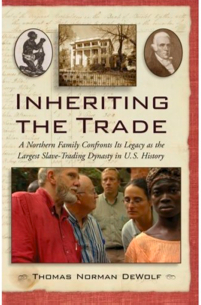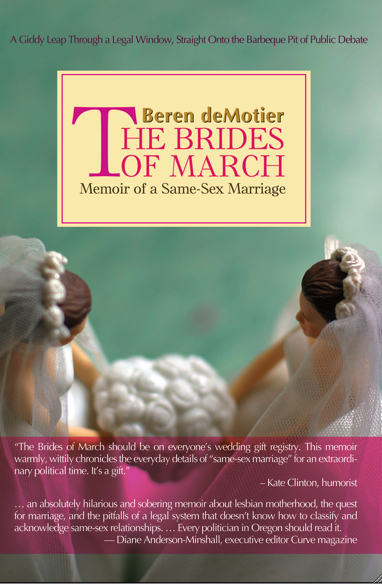Yes, it’s that time again, campers, the period that fills aspiring writers with dread, literary conference-organizers with trepidation, and procrastinators with, well, what always fills them. I refer, of course, to the annual advent of literary contest season.
Well might you shudder, but you can’t say I didn’t warn you. Last week, I gave the Author! Author! community a heads-up: since I hadn’t run a series on prepping a successful contest entry in a while (since 2008, to be precise) and quite a few of you intrepid souls had posted questions on the subject in recent months, I am going to devote the next few weeks to discussing what differentiates a contest entry that makes it to the finals from all the others. What criteria do contest judges tend to rely upon to evaluate entries, and how may a clever writer gear that entry to cater to their expectations?
That’s right, folks: we’re going to have a countdown to a contest. Feel free to play along at home.
Why choose these particular few weeks? May 15 is the deadline for the this year’s conference — held in the hotel where Truman Capote claimed to have been born, no less — and the grand prize winners will be flown in to accept their awards.
So by using this particular competition as our lodestar — and, not entirely coincidentally, our rule exemplar — I’m maximizing the probability that I will be shaking one of your hands in November. Call me zany, but I’d get kind of a kick out of that.
There’s another, less pleasant reason that I’d like to run a post on contest-entering: even in a pursuit historically renowned for the established helping out those just beginning to wiggle their trembling tootsies onto the path to glory, writers seldom talk amongst themselves about contest entries. It’s assumed, and for good reason, that literary contests are purely devoted to art.
Why, then, would there be any reason to try to figure out a winning strategy? The best-written entries will win, obviously; it’s not like submitting to an agency or small publisher, in which market considerations will sometimes rear their ugly, snarling heads at a beautifully-written manuscript.
Oh, dear, sweet Virginia. Do I ever have some bad news for you about Santa Claus.
Not that I would ever discourage a serious writer from entering a reputable literary contest. As an author who landed her agent partially as a result of having won a literary contest of some repute I am, as my long-time readers already know, a tireless proponent for this brand of ECQLC. Indeed, contests have done a lot for me in many respects: when I first began working on my memoir, at the time called Is That You, Pumpkin? Love, Loss, and the Final Passions of Philip K. Dick, my mother initially resisted my writing it as nonfiction.
Yes, really: even in a family as steeped in literary tradition as mine, she didn’t want me writing about my childhood. She lobbied tirelessly for my telling my story in a novel. Preferably after she had joined the choir celestial.
As I had already been editing for some time, though, I knew that the book would do better — and be more honest with readers — as a memoir. So we struck a bargain: if I took first prize in a literary contest with it, she would withdraw her objection. On one condition: I could take no more than twenty-four hours to prepare my contest entry.
Talk about your stacked decks. So it was with great pleasure that a few months later, I whipped out my cell phone at the awards ceremony. “Mother,” I shouted over the applause. “I won the contest. But I have to go now — they want to take my photo.”
Ten minutes later, she called me back. “Am I to understand,” she asked quietly, “that you won for that book?”
To her credit, she’s stood by our bargain. And it hasn’t been easy: by the end of the weekend, I had 27 requests for the book proposal; seven months after I accepted the award, my newly-minted agent sold the book, and within the year, my publisher had already received the first lawsuit threat. (Not all of my extended family has been equally supportive.)
So before you dismiss my take on contests as cynical, please bear in mind that until the bit about the lawsuit, I was the mythical contest winner for whom the literary world actually did open up immediately. That was not by accident. When I took my prize, I was lucky enough to be acquainted with many past literary contest winners, so I knew both what to expect at judging time (hint: contest organizers enjoy it when those they recognize go on to get published) and after (like, say, that one is not automatically awarded an agent along with that nice blue ribbon). I had also entered writing competitions before.
I was not, in short, just popping my work in the mail and hoping for the best.
I feel strongly about passing that lore along to future contest winners — and to those that deserve to be. Having also served as a contest judge many times, I feel even more strongly that entrants and judges alike would be happier if some of the prevailing myths and mysteries were dispelled.
Like what, you ask? Well, f starters, I wish that I had realized prior to my first contest entry how heavily the potential marketability of the book tends to weigh in the judging.
Oh, I knew to check lists of past winners of broadly-defined categories in order to see if certain types of books had traditionally won. In the contest where my memoir won, for instance, the nonfiction book winner had been — and continues to be — rarely anything but a memoir, bad luck for writers of other nonfiction books. It had not occurred to me before my first entry, however, that contest judges might be using the same criteria as agencies.
Or, at any rate, what the contest’s organizers and judges believed to be the criteria used at agencies. But that’s a bit of bubble-bursting for later in this post.
But the first time I entered a contest, like virtually all premiere literary contest entrants, I had thought — possibly because the contests I was entering said as much on their promotional materials — that the only things that mattered were the beauty of the writing, how professionally the text was presented, and how compelling the story was. So when I received feedback from a judge (as some contests provide; check the entry form carefully) that said this is a great story, well told, and you can clearly write — too bad that there isn’t a market for it, I was crushed.
But I did learn something from that experience: the next time I entered a contest, I sent not my best writing, but my most marketable book concept. And I won. So I suppose I should be grateful to that curmudgeonly contest judge, in retrospect.
“But wait!” the neophyte entrant shouts. “Why should my entry be judged upon any criterion other than pure quality of writing? If not…“ and here, as you may well imagine, tears well up in the neophyte’s harp seal-like eyes, “how can we be sure that the best writing will always win?”
Oh, how can I put this delicately? How about the same way we know that the Tooth Fairy is indeed the one who filches all of those discarded teeth from under the pillows of the innocent? Or the reason that we’re convinced that the Rabbit of Springtime is responsible for chocolate eggs showing up on Easter morn? Or — brace yourselves, idealists — based upon the abundant evidence that a manuscript has only to be well-written to become the toast of the literary world in record time?
If your first instinct upon reading that last paragraph was to say, “By Jove, yes! There are some things that I am simply willing to take on faith,” then I can only suggest that you avert your eyes from what I’m about to say next. If, on the other hand, you laughed out loud, read on.
Only the cynical on board now? Good. Winning a literary contest is virtually never just about the quality of the writing in the entry. It’s about the writing AND playing the contest game well.
Of course, being lucky doesn’t hurt, either. Which means — you might want to hold onto your hat here, Virginia; this is a big one — that the best-written entry does not necessarily always take top honors. Heck, the best-written entry that meets all of the judging criteria doesn’t even necessarily win.
Why not? The intensity of the competition, partially: often, in a well-established competition, dozens of entries could technically walk off with the prize. But without a shadow of a doubt, even a brilliantly-written entry that does not meet those criteria, or that violates contest rules, will virtually never make it to the finalist stage.
Feeling faint, Virginia? Excellent. That means you understand.
For those of you whose blood has not yet drained to your knees, allow me to elaborate: in practice, a good two-thirds of the entries to the average contest never stand a chance of winning. Not because those entries were poorly written, but because contest entrants have, as a group, a less-than-admirable tendency not to read rules and guidelines very closely. Over and above technical violations, most entries are also docked points for such unromantic trespasses as incorrect formatting, misspellings, lack of a hook in the first line, and any of hundreds of other minuscule infractions.
And that’s before the aesthetic judgments are even under consideration. Anyone care to guess why contest judges generally tackle the nit-picky stuff first?
I can already my long-term readers chanting the answer: for precisely the same reason that agencies are so eager to use technical criteria to reject submissions — time. Since the overwhelming majority of contest entries are rife with technical errors, casting the technically flawed manuscripts out of finalist consideration is the single quickest way to thin the stacks of entries.
Sorry about that, Virginia. And when you’ve got a second, there’s something you ought to know about the Tooth Fairy.
Unfortunately, unless you have had the foresight to have volunteered to serve as a contest judge in the years before you enter your first contest — not a bad idea, incidentally; contests are always seeking new judges, and it’s one of the least expensive crash courses in why most manuscripts get rejected you’ll ever find — it’s rather challenging for the average entrant to learn what precisely the relevant criteria are. I’d like to make it easier.
Why? Well, if you are going to invest the not inconsiderable time, effort, hope, and entry fee in trying to generate some ECQLC, call me zany, but I’d like to see you stand a good chance of winning. Short of previous publications, winning, placing, or being named a finalist in a well-respected contest is some of the best ECQLC you can have. Millicents pay attention to that kind of credential; it makes your query letters jump out of the daily pile.
Why? Well, most queriers list no writing credentials at all, either through lack of awareness that it would help make their query more effective or, more commonly, because they have no credentials to list. The cumulative result of this pervasive phenomenon: a query that lists publication credits and/or contest wins automatically looks substantially more professional than most.
Yes, even if those credits or wins are in wildly different genres than the book being queried. Agents enjoy being the second person to recognize a writer’s talent, after all.
“But Anne,” the practical-minded among you ask, and good for you, “how does an aspiring writer know which contests will make for the best ECQLC for the buck? Because I don’t know whether you’ve been keeping track of this sort of thing lately, but writing contests are often rather costly to enter. Not merely in terms of writing a check for the entry fee, but also in terms of the time, effort, chagrin, and postage to get an entry to the right place at the right time — like, say, by fourteen days hence.”
That’s a fine question, bean-counters, and one that richly deserves an answer: as anyone who has ever Googled “writing contest” is no doubt already aware, there are a heck of a lot of literary competitions out there. Most, unfortunately, do not offer cash prizes, but many do offer publication. (In fact, contests are a not uncommon way for literary magazines just starting up to rake in a whole lot of good writing for free.) While all seem to be offering the possibility of some nice, shiny ECQLC, not all of them will strike Millicent as equally impressive.
Virtually all, however, charge an entry fee, sometimes a hefty one. And let’s face it, querying and submitting can already be pretty expensive, on a variety of levels: you’re going to want to apply your resources with discretion.
But that’s true with every type of professional promotion, is it not? There is now an entire industry devoted to offering help to aspiring writers, and like seminars and conferences and how-to books, what the contests offer writers who enter varies widely. So just as you should learn all you can about a writers’ conference before you slap down the registration fee, before you pay to enter a contest, it would behoove you to do a little bit of homework.
That’s right, Virginia: you do indeed feel a checklist coming on. Whip out those contest descriptions, and let’s start thinking critically about them.
1. Is there strong evidence that this writing competition is credible?
That may seem like an odd question, especially if you are in the habit of entering only well-established contests, but every year, brand-new writing competitions come flying out of the woodwork. It can be genuinely difficult for even a very conscientious writer to sift out the fly-by-night from the legitimate literary opportunities.
The first step to being a savvy entrant is to be aware of the possibility of a scam. Just because an organization slaps up a website and calls for entries does not necessarily mean that the contest in question is reputable — or that it will adhere to the timeline set out in the rules for awarding prizes. (Oh, how I wish I could tell you that slow processing is uncommon.) Sometimes, contest organizers honestly have no idea how much work processing all of those entries will be; sometimes, they do, but aren’t really in it to reward good writing.
Unfortunately, the first place I would normally send you to find the answer to such a question, Preditors and Editors, is not going to be much help. Oh, it will tell you if a contest is a notorious rip-off, but as a matter of policy, P&E will not recommend any contest that charges any entry fee at all. Which essentially eliminates contests that deal with book-length works — or that award significant prizes.
How so? Well, unless a contest is being run as a charity — which even most scrupulously non-profit writers’ organizations cannot afford to do — or the administrative details are being handled by Santa while the Easter Bunny, the Tooth Fairy, and the Great Pumpkin frantically read entries, I’m not quite sure how even the most well-meaning contest organizers could pull this off.
A blanket disapproval of entry fees means, in practice, that the reputable contest that charges $25 to cover irreducible administrative costs (contests don’t run themselves, you know) ends up lumped in the same category as the aspiring group of friends who realized that they could rake in a whole lot of money if they threw up a website, announced a literary contest for book-length works (as I say, there aren’t many of them) at $100 a pop, and sat back to rake in the dough.
Ultimately, that the potential entrant will need to dig a little deeper to determine credibility. Like, say, digging up a few facts.
2. If a contest offers publication as a prize, have past winners indeed had their entries published? Does the organization maintain a list of past winners, so future entrants may check whether that contest’s winners typically go on to be published? Heck, were last year’s winners announced on time?
Oh, pick your jaw up from the floor, Virginia: you would be surprised how often the answer turns out to be no.
To complicate matters further, it is no secret that there are many contests out there that solicit widely for entrants primarily as a fundraising, rather than what 99.9% of the aspiring writers that send in pages believe them to be, a sincere attempt to discover heretofore unsung talent. In fact, the last few years have seen quite a bit of controversy in the writing community over how various literary contests are judged. Specifically…
3. Does this contest provide blind judging?
Blind judging, the situation in which the judges do not know whose entry is whose, tends to be better for first-time entrants. Check the rules carefully: not all contests feature blind judging. And not all contests that claim to have blind judging actually do.
I know, Virginia, I know. Just hold that cold compress to your head, and the dizziness should subside soon.
Why should a prudent entrant worry about how a contest is judged? Selective judging may render it harder for a newcomer to break into the finalists’ circle. It is not unheard-of, for instance, for organizations to solicit entries from outside their memberships, but have an established track record of awarding prizes to only — or primarily to — their own members.
Check the fine type of the contest rules. In a credible contest, entrants are asked to leave their names off the submission’s pages (i.e., no last name in the slug line, no name on the title page), so that there is no possibility of a contest judge’s looking an entry and saying, “Hey, I know him. I owe him a favor — I’m just going to slide it into the finalists’ pile unread.” It will also usually call for a cover page or entry form, so the competition’s organizers can later match the winning entry with the entrant.
“Okay, Anne,” those of you working through this checklist sigh, mopping your weary brows, “this is a lot of work — and, incidentally, substantially adds to the time I’m having to devote to entering a contest — but it’s worth it if I can be sure the competition is legit. May I go ahead and send in my entry now?”
Not so fast, Virginia. For your own protection, you might want to engage in a little more research.
4. Do the past winners’ lists reveal any patterns? If so, do they represent trends likely to assist my entry’s chances of winning?
Often, contest literature is perfectly up front about certain preferences: if a competition is only open to writers from a certain state, for instance, the rules will generally state that directly. Obviously, it would be a waste of time, money, and energy to enter a contest if you — or the writing you are planning to enter — do not meet their criteria.
That being said — and as I intimated above — not all such criteria will necessarily be listed; some contests do seem to have unspoken rules. That nonfiction competition I won, for instance: reading only the rules, rather than the list of past winners, would not have revealed a preference for memoir. It may not have been a conscious preference, even: judges are human beings, with individual literary tastes, after all.
Oh, please, Virginia. You mean that it hadn’t occurred to you that contest judges applied their personal taste to the evaluation process, in addition to objective criteria? Did you honestly expect that if your short story about your torrid fling with an airline pilot happened to be randomly assigned to a judge who had just been dumped by a navigator, he might not be completely open to enjoying it?
Naturally, a contest entrant cannot foresee a contingency like that, any more than a submitter could possibly predict whether her manuscript will happen to be in front of Millicent when she takes a sip of a too-hot latté, burns her lip, and consequently is in no mood for a lighthearted comedy. Chant it with me now, contest aspirants: luck does in fact play a role.
You can, however, do a bit of checking to rule out competitions that might not favor your work. Let’s posit, for example, that a particular contest has historically favored Gothic romance. You, on the other hand, write futuristic fantasy, and there is only one category for novels. Think you’d be probably better off going for a different contest, one that favors your type of work?
If your answer was an unqualified, “By God, yes!” help yourself to a gold star out of petty cash. The more specialized your genre, the more it behooves you to check in advance whether a conference’s complement of judges tend to treat it with respect.
Nor is that all you can do. A quick scan of the hometowns of the finalists and semifinalists of years past, for instance, can be quite informative: if they cluster too much, geographically speaking, wonder if the locals have an edge. By the same token, if that competition that says it is open to writing in any fiction category, yet it has never displayed fiction in your chosen genre on the finalist lists, you might want to think twice about entering.
It’s also not all that unusual for contests ostensibly intended to recognize the unpublished to allow published writers to submit their work-in-progress for judging alongside the work of the less experienced. Again, check the rules: often, they will specify that the writing being submitted will not have been previously published, not that the entrant has not.
Sometimes, though, the rules are a bit vague on this point; it often does not seem to occur to the lovely people kind enough to run a contest that an established author might want to crash the party. A good tip for figuring out how crashable it is:
5. Check last year’s winners’ list for the already published and moderately well-known, as well as the year before. Does this appear to be a contest that consistently rewards writers at your level of professional development?
I know, I know: this might seem like a silly thing to do, but if ten minutes of checking can save you a week’s worth of contest prep and a hefty entry fee, it will more than pay for itself. If the contest’s website is filled with rhapsodies by recent winners about how their dreams came true, chances are that this is a contest that does indeed gear its judging to non-professionals. If, on the other hand, John McPhee has won their short story category any time since 1955, they’re probably not too careful about keeping out those with hefty publishing credentials.
Oh, you may laugh, but it does occasionally happen. During the recent publishing slump, it has not been unheard-of for established authors to enter contests ostensibly for the as-yet-to-be-discovered. A few years back, a local writers’ organization awarded a minor prize to a thriller author whose name had several times graced major bestseller lists. (And whose name you might well recognize, by the way, so pardon my being cagey.) I guess he just wanted a bit of author bio decoration, even if it came at the expense of some struggling writer’s ECQLC.
That’s the kind of thing one might hear on the writers’ grapevine, right?
6. Don’t rely entirely upon what the contest’s organizers say about it. Google past winners, to see what they have to say about the contest; do a quick online search for articles on the organization itself.
Did that last part make you giggle, Virginia? It’s actually not a bad way to check for a scandal. The publishing industry boasts quite a few publications focused upon the life literary, and they often employ reporters quite good at their jobs. About ten years ago, for instance, a major writers’ magazine happened to notice that the students of the writers who were judging contests seemed to be winning major awards on a fairly regular basis.
Ready for another shock, Virginia? After the scandal broke, absolutely nothing bad happened to the judges who were favoring their students in competition. Heck, some of them are still regularly judging contests. Obviously, this kind of pseudo-blind judging is grossly unfair to the other entrants, but the moral of this story is not that not all contests are squeaky-clean.
The subsidiary moral: let the entrant beware.
Don’t look at me like that, Virginia. The last time I checked, I did not run the universe, nor do I manage any of the many and varied contests out there for writers in the English language.
If I did run either, contest entries would be free; every contest would provide each non-placing entrant with supportive and useful feedback; finalists would be given a tutorial on how to approach agents and editors before and after the winners were announced, and every time a writer finished writing a good paragraph, a sugar-free, fat-free, calorie-free chocolate cupcake with a cherry on top would appear on her desk, as a reward for virtue.
If you haven’t noticed any of these things happening lately, it’s fair to say that I still am not in charge of very much of the writing world. I shall never forget shocked silence that ensued at a normally quite respectable conference’s awards ceremony when the teenage daughter of two of the contest judges carried off the Young Writer award — and, as I recall, a not insignificant check, derived, no doubt, from the entry fees of hundreds of trusting high school students whose parents were not regularly having drinks with the judges.
Had Santa Claus, the Easter Bunny, and Bob the Builder all been hauled out of the room by DEA agents for peddling narcotics to kids, the attending writers’ expressions could hardly have expressed more disgust.
Now, to be fair, in that particular year, the winner’s parents had actually been judging in other categories, not their offspring’s, but since they had been her first readers and were rather chatty people, it would have required a faith in human nature so childlike that it would border on the infantile to believe that the judges in her category would not have had SOME inkling which entry was hers.
I’m not saying that the contest was rigged, per se; I’m just saying that the teenaged winner’s mother won in the nonfiction category. Neither she nor her husband judged that either. A good tip for avoiding this type of situation:
7. Enter contests sponsored by organizations, not cliques. Ask other writers about particular contests before you spend time and money on entering them; if you can’t find information about a contest, post a question on a reputable writers’ forum.
Again, the writers’ grapevine can really help you, if you’re willing to invest the time. Yes, you might end up with fifteen complaints from past entrants annoyed because they did not wind, but you also might hear from people with good things to say about the contest.
If you’re so shy that the very idea of posting a question makes your chest seize up, do not despair. You can also glean this information from an impersonal source.
8. Check to see whether someone else has already done this homework for you.
Yes, this could be read as a continuation of the last one, but not all sources of information are informal. Poets & Writers magazine lists literary contest deadlines in each issue, does a pretty good job of screening, so if a contest seems a bit shady to you, check if it is listed there.
All of that, believe it or not, is just to weed out the contests that will be a complete waste of your time and money to enter. But that’s not the only issue here, is it? You’re also going to want to ask yourself another question before mailing off your submission:
9. Don’t let a large prize sway your judgment. Consider carefully whether a particular contest will help advance your book’s publication process — and whether it is likely to reward an entry like yours.
Yes, any contest win or place will look nice on your writing résumé, but obviously, some contests are more prestigious than others. As a spot of research in a well-stocked bookstore will tell you, the same prizes tend to be named repeatedly in the dust jacket author bios of first- and second-time authors. If that’s the case with your chosen book category — especially likely to be the case if you write mystery, romance, or literary fiction — it’s a better use of your entry time and resources to enter those contests than others. You already know that being a finalist in one of those contests will impress a Millicent in that category, right?
That being said, though, the big contests often garner thousands of entries. Less prestigious ones can actually be a better bet for a first-time entrant — presuming, of course, that they are legitimate.
“Has not ruling the universe finally unhinged you?” Virginia exclaims. “Isn’t bigger always better?”
Not necessarily. You might be better off with a less well-known contest your first few times out, for an exceedingly simple reason: your odds of making the finals are significantly higher in a small entry pool than a large one. Big-ticket contests attract stiff competition; contests with large cash prizes attract a higher percentage of professionals amongst the entrants.
10. Take a realistic look at what you are planning to enter and ask yourself: does this writing bear some resemblance to past winners’ entries?
This is a slightly different question than the one about genre preference: in many, if not most, literary contests, the winning entries tend to be stylistically similar. This is true for another exceedingly simple reason (they are abounding today, are they not?) — contest judges tend to be loyal folk, returning to the task with a tenacity a spawning salmon would envy.
Why is that significant at entry time? In most writers’ organizations that offer contests, the first round of reading is performed by volunteers. Typically, the same volunteers, year after year after year.
And, miraculously, these sterling souls’ literary tastes don’t change all that much in the intervening twelve months between judging cycles. Go figure.
Perhaps unsurprisingly, many, many contests tend to favor more literary writing — which is not, if you will recall, necessarily synonymous with good writing. Every book category has its own standards for excellence, after all. Literary fiction is a category designation, not a value judgment: it is experimental or character-driven storytelling aimed at a college-educated audience, filled with closely-observed details and lovely phrasing.
It also does not conform to the standards of a particular genre — or, if it does, it does so in a manner atypical of that genre. So when an aspiring writer says, “Oh, I write literary fiction,” and then proceeds to give the plot of a thriller, Millicent is likely to conclude that the writer simply does not understand the distinction very well.
It’s an understandable confusion, though: it is fairly common for agents and editors to use the term literary to describe the writing of a book in another category: “It’s a personal memoir with literary sensibilities,” for instance, would mean something specific to the agent of your dreams: the manuscript in question is nonfiction, autobiographical, has a large vocabulary, and the writing style is sufficiently complex and polished that someone not necessarily devoted to memoir might read it for the writing alone.
Come closer, and I’ll let you in on a little secret: unless a contest is specifically known for recognizing plain-spoken writing or genre fiction, its judges will probably lean toward the more literary-voiced entries. How can you tell? Once again, by checking the lists of past winners: if the top mainstream fiction category prizes in a prestigious competition are carried off year after year by literary fiction writers, you might want to think twice about entering fiction that is, say, particularly mainstream.
If, however, you happened to write on the literary side of romance, or are an unusually descriptive SF/fantasy writer, you might stand a good chance. Getting the hang of it?
Are you shifting uncomfortably in your chair again, Virginia? Spit out your concern, please. “I can see why checking this might be a good idea,” she says carefully, “but I have no idea how to go about it. How can a potential entrant possibly tell what the judges’ preferences are, short of taking them all out to lunch individually and asking them?”
Good question, Ginny. Most contests will list past winners on their websites, tucked away in a corner somewhere; many writers, aspiring and established alike, maintain websites, too. I would advise Googling the past few years’ worth of winners and placers in the category you find most appealing, to see if they have posted any writing samples.
If the sponsoring organization publishes winning entries – and many sponsor small magazines — read a few. If your writing style is radically different from what has won in the past, the contest is probably not for you.
11. If the judges for the finalist round are listed, and they are writers, take a gander at what they write. Is the writing in your entry stylistically similar?
Yes, individual tastes do vary, and every contest has its own stated and unstated judging criteria, but the writing style with which the finalist judge is most conversant tends to be a fairly reliable indicator of what kind of writing he is likely to reward. In any contest with celebrity judges — i.e., famous writers who make the final selections from amongst the finalist pool — this goes double, or even triple. If your writing doesn’t resemble the famous judge’s in form, give that fact some serious consideration before bothering to enter.
I can feel you wincing, Virginia. Crunching a few dry crackers should help with the nausea.
Even if you’re lucky enough to find a celebrity judge who is well-read outside of her own subgenre — and, even better, willing to recognize work unlike his own — remember the bigwigs virtually never read all of the entries. Commonly, they read only the finalists’ submissions. In practice, that means that those crusty volunteers I mentioned above screen the entries first – and all too frequently, edge out good entries that do not resemble the celebrity’s, on the well-intentioned theory that everyone’s writing tends to reflect his own reading tastes.
The first-round judges’ intentions are good here, honest. They’re just trying to save the celebrity some time.
I hear you groaning, Virginia, but the two-tier system is followed in practically every literary contest, celebrity-judged or not. Almost invariably, the first rounds are evaluated by a different group of people than those who ultimately pick the winners. Sometimes, the judging criteria are not coordinated across rounds as well as one might hope.
Which is why, in case those of you who have heard contest judges grumbling in the bar after awards ceremonies had been wondering, the entries that really wow ‘em in the early rounds often do not win or place. Usually, it is only within the power of a first-round judge to recommend that an entry make it to the finalist round. What happens thereafter is generally under someone else’s control.
Why set it up this way? Well, final-round judges are often established authors — or chosen from amongst those agents and editors who are committed to attending the conference attached to the literary contest. They agree to read a certain number of entries.
There’s another reason, though, one that’s significantly to the advantage of a first-time entrant: a two-tiered (or even three-tiered) system also makes it significantly harder to rig an outcome. And if it’s not clear why that might be desirable from an entrant’s point of view, you might want to re-read that anecdote about the judges and their daughter.
12. If the final round judges are agents or editors, check out what they handle. As part of the benefit of entering such a contest will be that these people might be reading your writing, are these people who might realistically work with you in future?
This may seem like unnecessarily long-term thinking, but it can help a savvy writer choose between two equally appealing contests, if deadlines are looming. Since you’re going to want to attend a conference if you are a finalist in the contest it sponsors (who is going to be more impressed by your achievement than someone already familiar with that conference and its tastes?), you might also want to check out the conference’s planned speakers.
Why? Glad you asked.
13. If the contest is attached to a conference where the awards are given (and, as I mentioned above, many are), try to find out in advance whether the agents who typically attend that conference ones who might be interested in your work.
I can tell you from personal experience: while having a contest win, place, or show under your belt is great ECQLC (eye-catching query letter candy), being a finalist at most conferences confers a good deal more than just a nice ribbon attached to your name badge. It marks you out as someone with whom, for instance, an agent might want to pause and have a hallway conversation, or ask, “So, what do you write?” during otherwise pitch-free social time in the bar.
And that, as they say, is nothing at which you should be sneezing. It’s a fabulous little conversation starter — and that could be a very good thing, if your dream agent happens to be in attendance, couldn’t it?
In case I’m being too subtle here: you might want to target contests attached to conferences that your dream agent habitually attends.
How can you find this valuable information? Believe it or not, the standard agency guides often list this information. (If you are unfamiliar with how agency guides work, please see the HOW TO READ AN AGENCY LISTING category on the archive list at right.) The Internet is your friend here, too: pretty much every conference will list which agents they cajoled to it last year and/or those who will be blandished into being there this year.
Why, yes, all of this will add a few hours to your contest-entering process, but at the risk of repeating myself — I can do that, right, now that the structural repetition series is behind us? — there’s more to using contests to your benefit than sending in a well-written entry. There’s strategy. Trust me on this one: unless you are planning to enter a contest purely for practice in following rules (not the world’s worst idea the first time around, actually), it’s a waste of your time, effort, and resources to enter a contest in which you do not have a realistic chance of garnering ECQLC.
Yes, Virginia, even if you happen to be the most gifted prose stylist in the world. There’s a contest out there that will recognize your talent — but not every contest necessarily will.
Next time, I shall turn this question on its head, talk about what you can get out of entering a writing contest. Keep your eyes on the prize, everybody, and as always, keep up the good work!

















